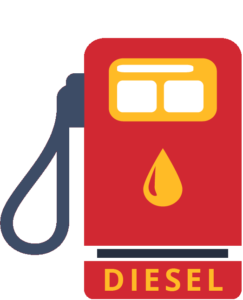Seven regional clean hydrogen hubs in the U.S. will receive US$7 billion in funding to help accelerate the domestic market for low-cost, clean hydrogen.
The funding announced by the White House comes from the Bipartisan Infrastructure Law, which provides approximately US$350 billion for federal highway programs over a five-year period, from 2022 to 2026 inclusively.
Funds will be spread across 16 states including the Mid-Atlantic, Appalachian, California, Gulf Coast, Heartland, Midwest and Pacific Northwest hydrogen hubs.
The White House says they are expected to collectively produce 3 million metric tons of clean hydrogen each year – nearly one-third of the country’s clean hydrogen production target for 2030.

California’s Alliance for Renewable Clean Hydrogen Energy Systems (ARCHES) will exclusively use biomass and renewable energy for hydrogen production, the White House’s announcement says.
The Mid-Atlantic Clean Hydrogen Hub group is a coalition of states including Delaware, New Jersey, and Pennsylvania. It plans to develop renewable hydrogen production from facilities that will use renewable and nuclear electricity with the help of electrolyzer technologies.
HyVelocity hub will be centered in the Houston region. With Gulf Coast’s access to renewable energy and natural gas, the hub plans for a large-scale hydrogen production through both natural gas with carbon capture and renewables-powered electrolysis.
Appalachian Regional Clean Hydrogen Hub (ARCH2) of West Virginia, Ohio and Pennsylvania will leverage the region’s access to natural gas, developing hydrogen pipelines, multiple hydrogen fueling stations, and permanent CO2 storage.
Washington, Oregon and Montana’s Pacific Northwest Hydrogen Hub (PNW H2) will produce hydrogen from exclusively renewable sources using electrolyzers.
The Heartland hub of Minnesota, North and South Dakotas will leverage the states’ energy recourses to help decarbonize the agricultural sector’s production of fertilizer, decrease the cost of clean hydrogen in the area, and advance the use of clean hydrogen in electric generation and for cold-climate space heating.
Midwest Alliance for Clean Hydrogen (MachH2) of Illinois, Indiana and Michigan plans to produce clean hydrogen with renewable and nuclear energy and natural gas.








